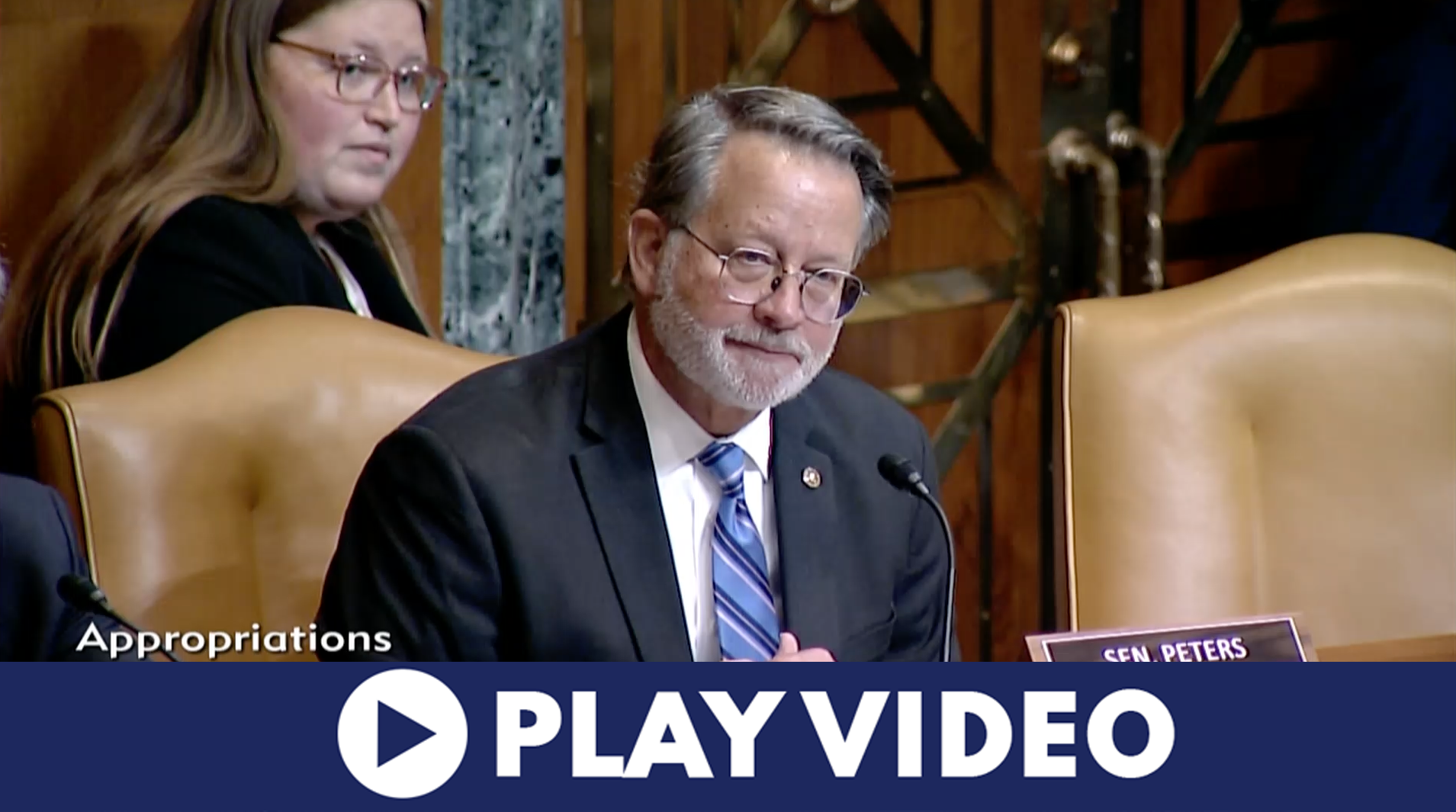VIDEO: Senator Peters Underscores Need to Combat Economic & National Security Threats Posed by Chinese Electric Vehicles at Hearing with Commerce Secretary
WASHINGTON, DC – During a Senate Appropriations Subcommittee hearing with U.S. Secretary of Commerce Gina Raimondo, U.S. Senator Gary Peters (MI) underscored the need to combat the economic and national security threats posed by Chinese-made electric vehicles. Peters also applauded the Commerce Department’s recent decision to raise tariffs on Chinese-made electric vehicles and other goods across numerous key sectors, including steel and aluminum imports, lithium batteries, critical minerals, solar cells, semiconductors, and medical equipment.
“Earlier this year, I called on your department and this administration to do more to combat the economic and national security threat posed by Chinese-made electric vehicles. I believe that we must ensure that the EV industry is built in the United States, and in Michigan, to create and protect good paying, union jobs for Michiganders but also ensure that U.S. manufacturing remains strong and competitive against the Chinese,” said Senator Peters. “And that’s why I applauded the Trade Representative’s announcement yesterday that your department will quadruple tariffs on Chinese-made vehicles to combat unfair trade practices and protect American competitiveness.”
Peters asked Secretary Raimondo to share what steps the Commerce Department will take to prevent Chinese Communist Party-backed companies from evading these tariffs that are meant to create a level playing field for American workers.
In response, Secretary Raimondo said, “I think Europe provides a cautionary tale because there were no tariffs and before you knew it, China went quite quickly from 0 to 25 percent market share in Europe of their EVs because of China’s distortive practices in keeping the price low. So, the reason that the President took this action to put a 100 percent tariff is so that that doesn’t happen to us…”
“We are very focused on this risk. We are worried about this,” Raimondo continued. “We have public reports that Chinese companies are setting up shop in Mexico. So, we’re tracking it. What the Commerce Department is doing is helping USTR by providing industry analysis and such, and I can just tell you that the purpose of USMCA was not to help China. It was to help the trade pact with the signatories of that agreement and we’re going to do whatever we need to do to make sure China doesn’t use Mexico to get around these new tariffs.”
Peters also reiterated his support of the Commerce Department’s recent advanced notice of proposed rulemaking related to foreign adversary involvement in the connected vehicle supply chain, and again urged Secretary Raimondo to ensure the investigation places an emphasis on vehicles and high-risk technologies controlled by Chinese Communist Party-backed companies.
“CCP-backed vehicles, however, don’t just pose an economic threat to United States, they also present a real security threat to our nation. We can’t allow the CCP to deploy the same playbook we saw with telecommunications equipment such as Huawei and ZTE when they flooded the U.S. market and created an espionage and sabotage threat,” Peters said. “Your department recently announced an investigation into the national security concerns of Chinese-connected vehicles, and I have urged you to use this investigation to take a close look at CCP-backed automobiles… I would like you to discuss some of your concerns regarding connected vehicles from China and when we can expect a proposed rule from Commerce on Chinese connected vehicles.”
“The comment period just closed and we expect to have the rule out this fall,” Secretary Raimondo responded. “I would say the national security risks are quite significant. If you think about these connected vehicles, they have thousands of sensors, thousands of chips. They’re controlled by software, which is coming from Beijing, in the case of Chinese-made cars. They know where the driver goes, what the driving patterns are, what you’re saying in your car. It’s a lot of data around US persons that goes right back to Beijing… So, I think it falls into the broader category of all of these connected technologies which collect massive amounts of data on US citizens, our children, our families, our military personnel, et cetera, all going back to Beijing.”
To watch the full video of Senator Peters’ questioning, click HERE or below.

###